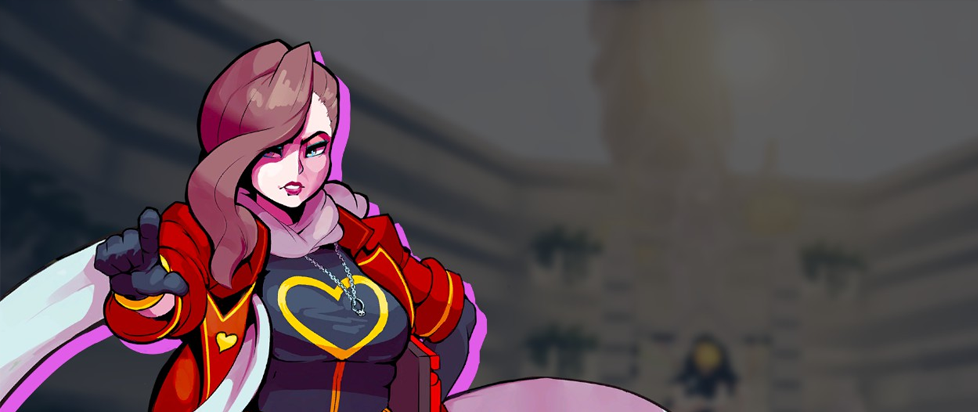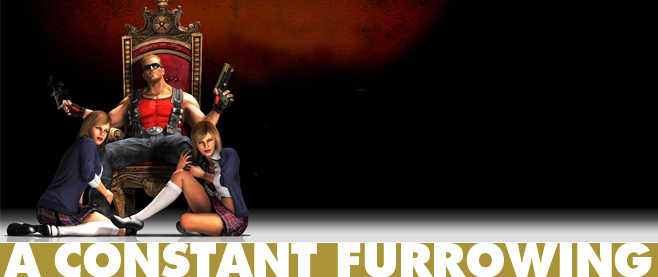
Lady Love Dies Cannot Save You
Spoiler warnings for the ending of Paradise Killer as well as revelations made throughout the game.
As pink and orange tequila sunrise bleeds across the setting skies of the dying 24th Island Sequence, Lady Love Dies reminds Henry he cannot join her on Perfect 25. The trial may have cleared his name, but more so than the demon housed within him, his caste is his damnation. “Justice” never awaited him. Access to “truth” was always above his pay grade. These concepts serve only the Syndicate’s agendas as tools for maintaining a caste system which keeps Citizens such as Henry laboring under the Syndicate’s heels, bleeding for the Council’s dead gods. “Justice” and “truth” in Paradise have been corrupted into what Audre Lorde terms “the master’s tools.” No matter how sympathetic to reform Lady Love Dies may be, Paradise Killer argues no one can be lifted out of oppression by the tools of their oppressor; whether a Citizen of Paradise or a victim of real world police.
In her comments during “The Personal and the Political Panel” for the 1979 New York University Institute for the Humanities conference, Lorde spoke on the glaring omission of Black feminists and lesbians in the conference overall. She names that omission a “tool of a racist patriarchy” and denounces the lack of intersectionality of the conference as well as white feminists’ supposed need for Black feminists to take on the burden of explaining these racist practices. She asks whether these tools of racist patriarchy should be “used to examine the fruits of that same patriarchy…For the master’s tools will never dismantle the master’s house” (Sister Outsider, 2007).
Though the subject of her argument was the failings of intersectionality within white feminism, the sentiment is one applicable to many sociopolitical arenas. Regarding the caste system of Paradise Killer, Love Dies can (depending on the player’s choice of dialogue options) express sympathy towards Henry and the Citizens made to labor unto death so the upper caste may live comfortably. She may even be open to performing the miracle of reforming the system from the inside, but her role is to maintain the smooth operation of exploitation—by lethal means as needed, not throw a wrench in the cogs. “Truth” and “justice” for the Grand Investigator become perverted into two more weapons holstered amongst her ornamented gun. Two more of the master’s tools, which cannot dismantle the master’s house, even when wielded by a queer woman sympathetic to Henry’s plight.
During the trials, Judge does not command Lady Love Dies to show them the truth, but her truth. As Love Dies, the player is able to initiate the trials at any point in the game, meaning no matter how much evidence they’ve acquired, or how little, a truth about the Council’s murder can be woven as long as Love Dies provides—or excludes—enough evidence to connect a satisfactory number of facts into a version of events Judge deems official. She need not draw a complete portrait, only present enough evidence to convict a suspect for a charge and everyone else is declared innocent until the next charge is presented. For example, though I knew Lydia and Sam Day Break had a hand in Witness to the End’s conspiracy against the Council, the truth I constructed failed to mention their involvement in anything as I hurled various charges related to that conspiracy on someone already scheduled for execution for an unrelated crime in which I chose to reveal their hand.
Paradise Killer draws a distinction between “fact” and “truth,” concluding that a truth is merely a version of events everyone can agree upon so that executions may be performed and the wheels of society may continue down a road paved in Citizen corpses. Henry’s corpse was always one destined to be crushed under that wheel. Love Dies can clear his name of every charge, but his position in the undercaste forbids him access to move from one Island Sequence to the next. Innocent, he still can only join the hordes of Citizens whose blood wet the gilded halls of the Opulent Ziggurat during the slaughter ritual marking the end of each Sequence. For the police in the real world, body cameras conveniently turned off, security footage withheld and racist stereotypes reinforced by the media are all that are needed to construct a “truth” about how and why a Black person was murdered.
“Justice,” therefore, is corrupted by Love Dies and the police’s perversion of “truth.” Though she claims to hunt for justice, what the term means for the Syndicate is not reparations for the decade of abuse and manipulation Henry suffered at their hands. He was never to be the recipient of any justice borne of the Syndicate’s perverted truths. Though justice was being sought in his name, it is reserved for the murdered Council—and the conspirators declared guilty of that murder would meet it down the barrel of Love Dies’ gun. Justice was reserved for the Syndicate, whom were made to suffer the inconvenience of a murder investigation before moving to the promised complete paradise of Perfect 25. Justice was reserved for Lady Love Dies, her crimes absolved and her position as law enforcement head of the Paradise Psycho Unit reinstated so she may dole out more of her justice.
Lady Love Dies may be open to reforming this abusive system, but as her lethal approach to justice evinces during the trial—as well as her authority to execute at her discretion afterward—any number of people may find themselves bedazzled by her glistening bullets before reformation is achieved. It doesn’t escape me that Paradise Killer was released in 2020, a year in which police abolition was at the forefront of many people’s minds. Though many a conservative playing as centrist or United States Democrat might pay lip service to “reform”, such talk of half-measures continues to legitimize the idea that the police are an inherent, necessary force in maintaining society. This is because even reformed policing only bears “procedural justice,” not “substantive justice”. The justice Lady Love Dies seeks is a “restoration of the status quo” mirroring the function of the US criminal justice system in maintaining the status quo of exploitative capitalism in the United States.
Prosecution and imprisonment are the “master’s tools” of criminal justice in the United States metaphorically and literally. Considering the perspectives of some of the most powerful “liberal” leaders in the nation, it does not take a PhD in political science to see how “reform” may be perverted into yet another tool of oppression. One which serves only the ruling class as innocent Black people continue to be murdered, imprisoned and abused. In Paradise Killer, Judge poses the question of whether Paradise is worth saving and the same should be asked of the police. There is no reformation for systems so entrenched in violent oppression as Paradise’s castes or American white supremacy. So much would need replacing, the idea evokes Theseus’s ship. Instead, we need to follow Doctor Doom Jazz’s example and sink the whole boat.
Trevor Richardson is a critic who loves manga, videogames, and matcha. They can be found tweeting about their current obsessions, latest writing, and queer fury @brisuuve.





